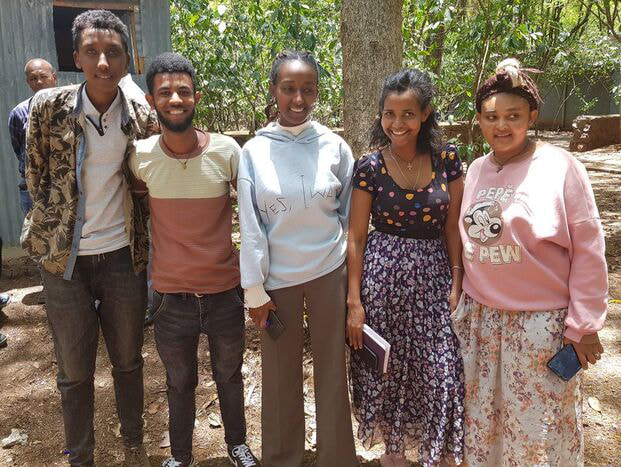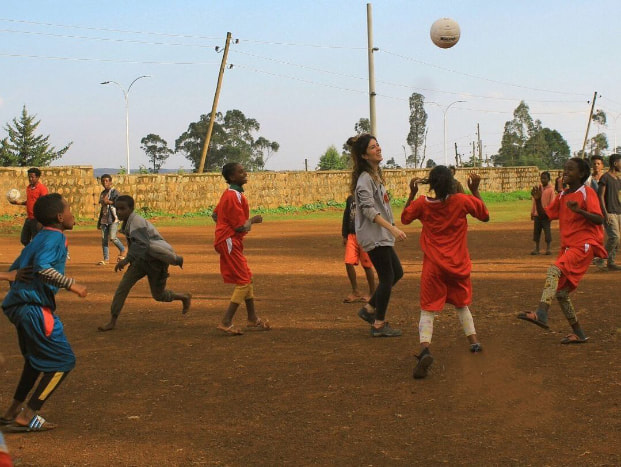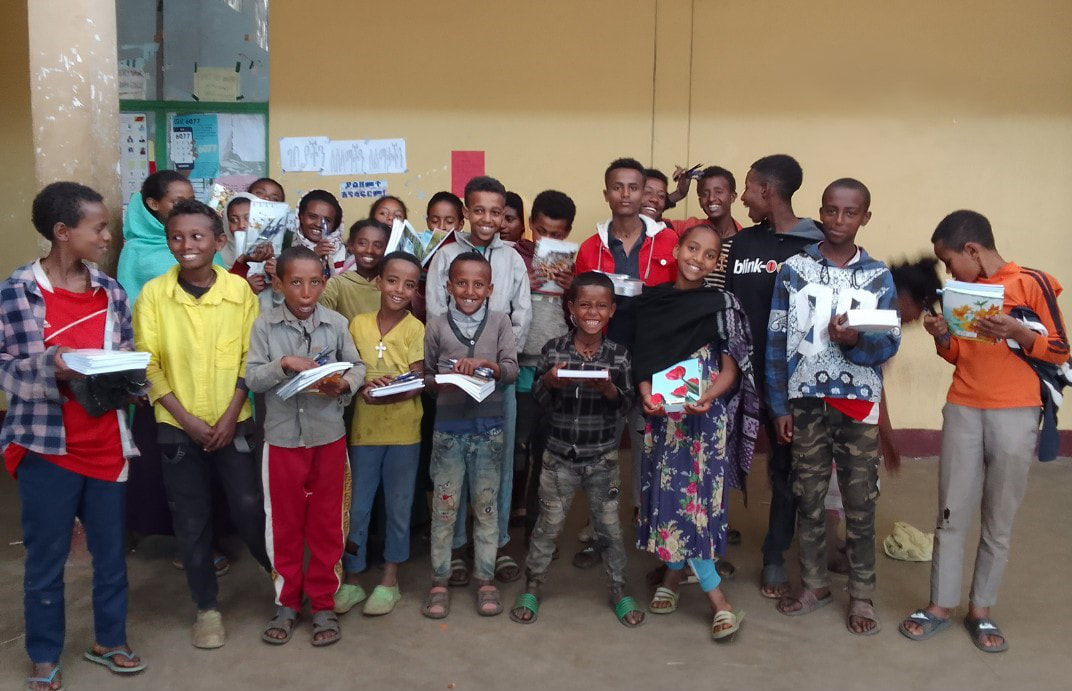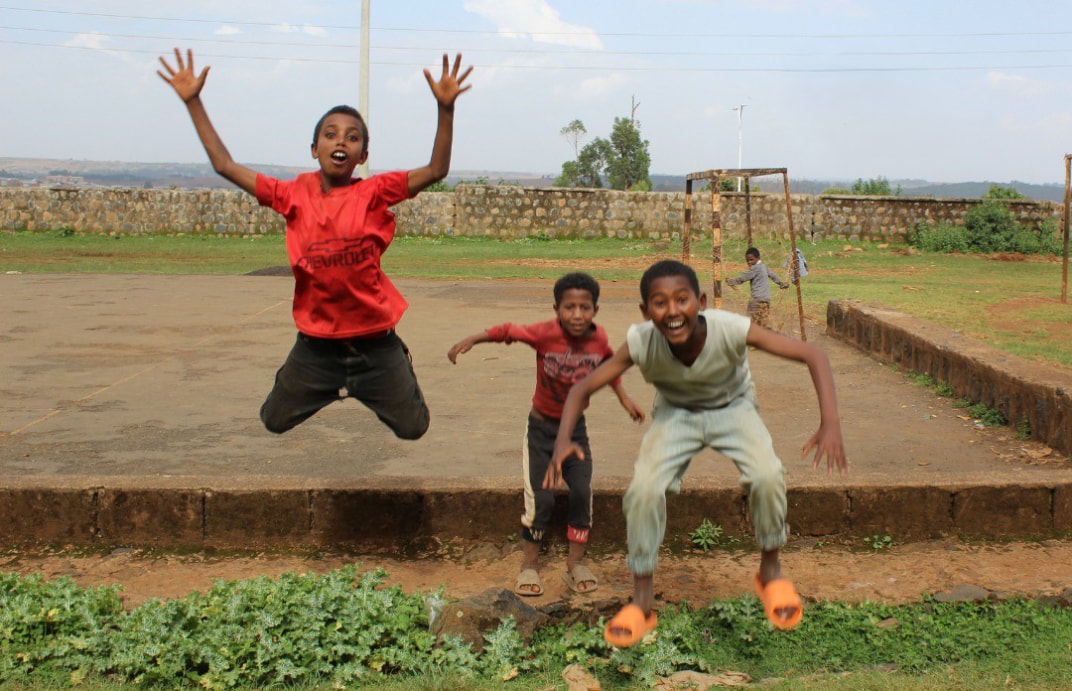Strengthen Street Children Resilience in Amhara, Region, Ethiopia (ST.RE.AM)
This project commenced in Ethiopia with co funding from the Lorna Byrne Children’s Foundation and aims to provide vulnerable children with skills to tackle their own problems and with the help of local authorities and civil society organisations, ensure the realisation of human rights and inclusion for this vulnerable groups.
Staff from APA and partner NGO CVM met with groups of children living rough on the streets to hear their own stories. They described the difficulties of street life – the challenges of finding food to eat daily, a safe place to sleep, abuse, violence, not being at school, no work and no sport activities. They ended upon the street mainly due to economic and family problems and death of parents due to HIV. Many children/teenagers desired to go to school or get work but their dreams for the future to become engineers, doctors, policemen etc. will never be realised if they continue as they are.
Over the past year, APA and local partners discussed the problems faced by Street Children and prepared a project plan meet their needs. Needs have first been identified by several meetings with street children/teenagers in all 4 targeted areas and discussions with local authorities.
Over the past year, APA and local partners discussed the problems faced by Street Children and prepared a project plan meet their needs. Needs have first been identified by several meetings with street children/teenagers in all 4 targeted areas and discussions with local authorities.
The project will address the situation of street children/teenagers with diverse type of activities under the following 5 different components
- Counselling, Communication, Drama Training, Behavioural Change Training and Sports Activities
- Coordination with Local Institutions Workshop with Key Partnerson Street Children and Childs Rights Policy
- Capacity Building: Training of Social Workers at Zonal Representative
- Reunification Package: Initially, the project aims to reunite 20 children per annum with their families and to support the families to look after them
- Education: Educational Support x 60 children/teenagers for primary and secondary school, and 60 teenagers will attend TVET (Technical Vocational Educational Colleges). Over the first months of the project, workshops and training have been taking place and groups of street children have been identified for inclusion.
Social Workers in the offices of Zonal offices Women’s and Children are not adequately trained to understand the needs of street children therefore training will assist them plus they will have the accompaniment of the project staff to reach out to the children/teenagers in an appropriate way to build trust and support them in making choices regarding their future.
The training of Community Police allows that children/teenager will have protection on the streets as police understand the needs, fears and challenges facing street children/teenagers. They will prevent their exploitation and look out for them on the streets and protect them against violence and harm. They will be a key link in the project and a security for street children.
The training of Community Police allows that children/teenager will have protection on the streets as police understand the needs, fears and challenges facing street children/teenagers. They will prevent their exploitation and look out for them on the streets and protect them against violence and harm. They will be a key link in the project and a security for street children.
The overall objective of the ST.RE.AM project is to strengthen the capacity of selected Zones of the Amhara Regional Government offices and Community groups together with Local Associations to put in place strategies to implement the Child Rights Policy in addressing the needs and rights of street children/teenagers. The problems to be addressed included: security and safety on the street, lack of police understanding of street children’s/teenager’s needs and children lack of protection, food shortage, sports, access to education and vocational skills training.






